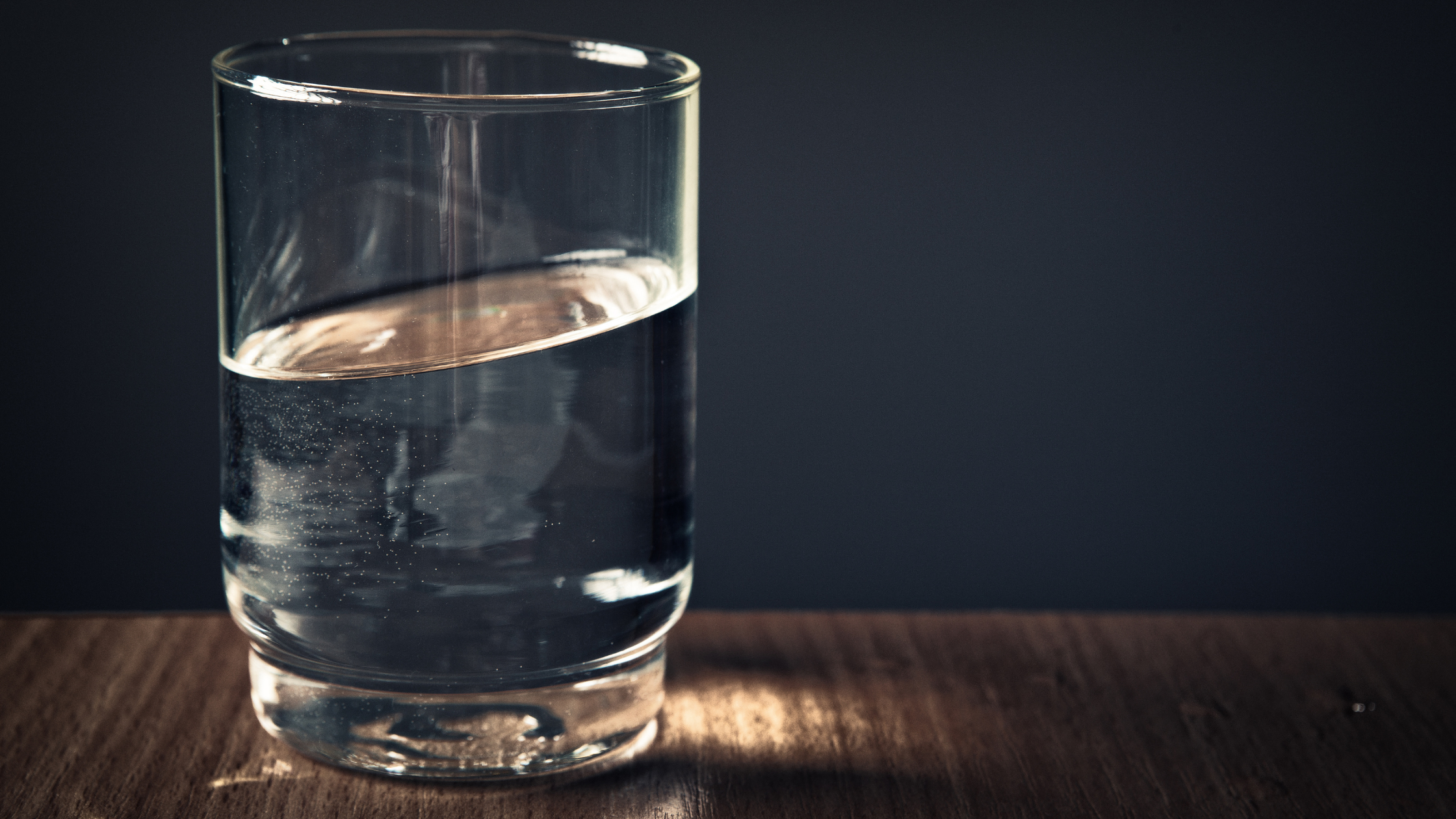Many of us are willing to take expensive supplements, attend intensive exercise classes, and overhaul our diets for the sake of our health. But what if the best thing you can do for your health was actually abundant, and easy to access?
Yes, we’re talking about water!
Around 60 percent of the human body is made up of water, and your health depends heavily on whether or not you’re hydrated sufficiently. Being dehydrated can harm your mental and physical health.
Unfortunately, many of us simply don’t get enough water a day. This can leave us feeling fatigued, moody, and sluggish. It can also lead to serious long-term health conditions.
Here’s why it’s important to stay hydrated, and how to encourage yourself to drink more fluids.
What role does water play in our bodies?
Your body needs a sufficient amount of water in order to function correctly.
Water plays an important role in:
- Keeping joints healthy
- Regulating body temperature
- Moistening tissues in the eyes, nose, and mouth
- Protecting organs and tissues
- Carrying nutrients and oxygen to your cells
- Keeping your skin healthy and elastic
- Maintaining brain function
- Flushing out waste
- Helping your body dissolve and use minerals
Hydration isn’t just important for your body. Because it plays an important role in brain function, it can also affect your memory, mood, and ability to think clearly.
What are the risks of chronic dehydration?
Every aspect of your health — including both mental and physical health — can suffer as a result of dehydration.
Not drinking enough water can result in:
- Fatigue
- Urinary tract infections
- Headaches
- Decreased brain performance
- Brain fog
- Low mood/mood swings
- Decreased athletic performance
- Constipation
- Kidney issues, including kidney stones
Chronic dehydration can wreak havoc on your physical and mental health. One of the easiest ways to give your body the best chance at being healthy is to drink enough water on a daily basis.
How much water do I need to drink a day?
It’s often said that we need to drink two liters of water a day. Although this is a reasonable figure, it’s not necessarily rooted in scientific research.
The U.S. National Academies of Sciences, Engineering, and Medicine suggests the following guidelines:
- 11.5 cups (2.7 liters) of fluids a day for women
- 15.5 cups (3.7 liters) of fluids a day for men
This includes fluids from water, beverages like tea or juice, and food. About 20 percent of these figures typically come from food.
The amount of water you need to drink can vary based on:
- Your weight
- How much you sweat
- How active you are
- Your individual biology
- If you’re pregnant or breastfeeding
There’s no easy way to figure out how much water you need to drink in a day, but your urine might give you a clue.
Your urine should be light yellow in color. If it’s dark yellow or amber, you need to drink more water. If your urine is colorless, you might be drinking too much water. Bear in mind that multivitamins and certain medications can also change your urine color.
Can you drink too much water?
Yes, it’s possible to be overhydrated. Drinking too much water can cause your body to flush out necessary electrolytes, like sodium.
If you drink too much water, you might experience something called water poisoning or water intoxication. When your cells are too hydrated, they begin to swell, which can cause pressure in the brain.
Drinking too much water might lead to:
- Headaches
- High blood pressure
- Low heart rate
- Kidney problems
To be safe, drink water in small increments throughout the day. Avoid drinking more than four liters a day. You’ll also know you’re drinking too much water if your urine is clear.
Why is it so hard to drink water?
As mentioned before, drinking water is one of the most affordable ways to support your overall health.
Although some people find it easy to drink enough water every day, others seem to find it really difficult. But why?
There are a few possible reasons for this. One could be that, if you’re used to drinking beverages that are packed with sugar and/or caffeine, you’re more likely to grab those beverages to satisfy your cravings.
The good news is that this is a habit that can be changed. Getting yourself to drink more water isn’t just great for staying hydrated: it can help you avoid overdoing sugary, caffeine-rich drinks so that you can have a more moderate, balanced diet.
How can I get myself to drink more water?
Drinking water is one of the simplest ways to support your overall health and wellbeing. But if you’re not in the habit of drinking enough water every day, it can be difficult to get yourself to drink more water.
Put water where you can see it
Make water more accessible to you. Keep bottles of water where you can see them: on your desk, next to your bed, near your couch, or even in your car. You might benefit from having multiple bottles for this purpose.
When you see it, sip it!
Try to get in the habit of pouring yourself a big glass of water every morning and keeping it on your desk. That way, you’re making it as convenient as possible to stay hydrated.
A good bottle goes a long way
If you tend to misplace things, bright colors can be helpful. Just as you might use a bright keyring or phone case to make it easier to find your keys or phone, use brightly-colored glasses or bottles so that your water is easy to see.
You’re also more likely to use a bottle you enjoy using. You might prefer a bottle with a built-in straw, for example, or a steel bottle. If your current bottle isn’t pleasant to drink from, treat yourself to a new one.
Use a habit tracker
Keep a water habit tracker to help you maintain your goals. If your goal is to drink at least one bottle of water a day, tick the date off. This motivates you to complete your “streak” by continuing to drink water every day.
It’s best to keep your habit tracker where you’ll see it every day — for example, on your wall, near your computer, or in your planner — so that you’ll remember to keep drinking water throughout the day.
Keep a glass or bottle of water on your nightstand
This makes it easier to start and end your day with water. It’ll be the first thing you see when you wake up, and thus a reminder to stay hydrated. If you wake up thirsty, you’ll be able to get a big gulp without needing to leave your bed.
Always order water at a restaurant
Get into the habit of asking for water when you sit down at a restaurant. That way, you have something to sip on throughout your meal. You can always order another beverage at a later stage, but you might find that the water is satiating as is.
Make it fun
If you get bored of water, try adding a slice of lemon, cucumber, or apple to your water bottle for some added flavor. You can also try sparkling water or soda water if you prefer.
Many people feel that ice-cold water tastes better. Depending on the weather, you might want to add ice to your glass. And if you’re feeling chilly, a mug of warm water can be quite comforting.
Eat water-rich foods
Foods with high water contents can boost your hydration levels. Common water-rich foods include:
- Cucumber
- Watermelon
- Tomato
- Watercress
- Apples
- Celery
- Lettuce
- Peaches
- Zucchini
There are a few easy ways to incorporate those fruits and vegetables into your diet. For example, you can cut up some cucumber, celery, and tomatoes and eat them as a snack at work.
Water-based meals, like soups and smoothies, can also be super hydrating.
Try other fluids
Pure water is the best way to get hydrated. However, you can also try other fluids, such as herbal teas or homemade juice, to increase your hydration levels.
Bear in mind that caffeine is a mild diuretic (which means it makes you urinate more). While your cup of tea or coffee won’t make you more dehydrated — they’re still fluids, after all — they’re unfortunately not as hydrating as water.
No matter which beverage you opt for, it’s best to avoid high-sugar drinks. Frequently drinking sugary liquids can take a toll on your body.
Add water to the dinner table
It’s a good idea to drink water with every meal. You might want to fill a jug and place it on the dinner table when you eat. This helps you get into the habit of drinking water at mealtimes — and with a jug of water at your fingertips, you’re less likely to reach for sugary drinks.
Talk to others about it
It can be easier to build a habit when you do it with other people. Tell your partner, parents, roommates, friends, or kids that you’re trying to drink more water. You’ll find that your loved ones might help you remember to refill your water bottle or pour a glass of water at the dinner table.
Chat with your health coach
Here at Knew Health, we offer a number of services and perks for our Members. One of those services is health coaching.
If you’re a Knew Health Member, we recommend taking advantage of our health coaching services. Your sessions are the perfect time to discuss positive lifestyle changes, such as increasing your water intake.
If you’d like to start drinking more water, set a goal with your health coach. They can offer you encouragement and positive habit-building advice. They’re also there to positively hold you accountable to your goals.
Maintaining your water habit
While it’s easy to forget to drink water — especially if it doesn’t taste appealing to you — it’s really one of the best things you can do for your health.
When it’s hard to stick to a new habit, remember why you started. Are you drinking more water to get rid of your pesky headaches? To soothe that mid-afternoon brain fog? To reduce feelings of sluggishness and fatigue?
After you get into the habit of drinking water, you’ll start noticing positive differences in how you feel. These positive results will motivate you to keep going.
Resources
- Adan A. (2012). Cognitive performance and dehydration [Abstract].
ncbi.nlm.nih.gov/pubmed/22855911 - Armstrong LE, et al. (2012). Mild dehydration affects mood in healthy young women. https://academic.oup.com/jn/article/142/2/382/4743487
- Camps, G., et al. (2017). A tale of gastric layering and sieving: Gastric emptying of a liquid meal with water blended in or consumed separately.
sciencedirect.com/science/article/pii/S0031938416312306 - Fadda, R., et al. (2012). Effects of drinking supplementary water at school on cognitive performance in children. https://pubmed.ncbi.nlm.nih.gov/22841529/
- Functions of water in the body. (n.d.).
mayoclinic.org/healthy-lifestyle/nutrition-and-healthy-eating/multimedia/functions-of-water-in-the-body/img-20005799 - Ganio MS, et al. (2011). Mild dehydration impairs cognitive performance and mood of men. https://www.cambridge.org/core/journals/british-journal-of-nutrition/article/mild-dehydration-impairs-cognitive-performance-and-mood-of-men/3388AB36B8DF73E844C9AD19271A75BF
- Mayo Clinic Staff. (2017). Water: How much should you drink every day?
mayoclinic.org/healthy-lifestyle/nutrition-and-healthy-eating/in-depth/water/art-20044256?pg=1 - The National Academies of Sciences, Engineering, and Medicine. (2004). Report sets dietary intake levels for water, salt, and potassium to maintain health and reduce chronic disease risk. https://www.nationalacademies.org/news/2004/02/report-sets-dietary-intake-levels-for-water-salt-and-potassium-to-maintain-health-and-reduce-chronic-disease-risk
- Picco MF. (2018). Does drinking water during or after a meal disturb digestion?
mayoclinic.org/healthy-lifestyle/nutrition-and-healthy-eating/expert-answers/digestion/faq-20058348 - Popkin BM, et al. (2011). Water, hydration, and health. https://www.ncbi.nlm.nih.gov/pmc/articles/PMC2908954/
Disclaimer: This information is being provided to you for educational and informational purposes only. It is being provided to educate you about how to take care of your body and as a self-help tool for your own use so that you can reach your own health goals. It is not intended to treat or cure any specific illness and is not to replace the guidance provided by your own medical practitioner. This information is to be used at your own risk based on your own judgment. If you suspect you have a medical problem, we urge you to take appropriate action by seeking medical attention.









































